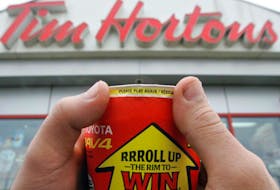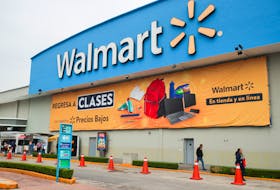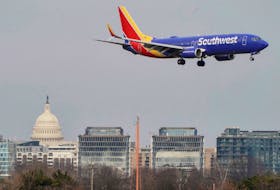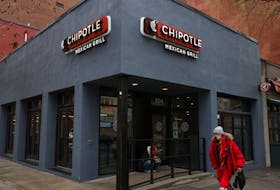The Newfoundland and Labrador Liquor Corp.’s (NLC) plans for overseeing the province’s blossoming cannabis industry reached the vegetative stage of growth with the launch of its Cannabis NL division and a formal request for proposals (RFP) for licensed cannabis retailers.
The call for retailers had been expected in late 2017, but Sharon Sparkes, NLC’s interim president and CEO, says it took a little longer because they wanted to be sure they got it right.
“We did quite a bit of due diligence on this and we certainly put the effort in and we feel the time we took is going to be well worth it in regard to the RFP detail and enabling us to ensure that at the end of the day we have the right balance in terms of the licensed cannabis retailers for the province.
“We feel very strongly that this RFP reflects certainly what the NLC views as our mandate as well as the government’s mandate for us.”
The NLC expects to award up to 41 licences in the first round, and that doesn’t include the four licences awarded to Canopy Growth, the first company to sign on as a supplier for the province.
The RFP sets out parameters for how many licences can be awarded in a given geographic region. Two important factors considered were population density in a given postal code and the distance a consumer would have to travel to obtain cannabis products.
For example, there will be up to seven licences awarded in St. John’s and Mount Pearl, where 25 per cent of the province’s population lives, but only one per postal code. That means, for the first year at least, there will be only one licensed retailer in downtown St. John’s.
Elsewhere in the province, postal codes where less than four per cent of the total population resides will be awarded a single license. The only region with more than two licences is the spread-out A0A postal code on the eastern half of the Avalon Peninsula, which will have four.
In the event that no RFPs are received from a specific region — something the NLC believes is highly unlikely — the corporation says it will explore the option of establishing its own presence.
The RFP identifies four styles of retail operation:
• Tier 1: Standalone store restricted to 19-plus with a dedicated exterior entrance and employees with a special knowledge of its wide selection of products.
• Tier 2: Store within a store, also restricted to 19 and over, where staff dedicated to the sale of cannabis products service customers within a segregated, contained and secure location within an existing retail operation. The NLC likens this model to their own retail operation inside the new Coleman’s grocery store on Newfoundland Drive in St. John’s.
• Tier 3: A dedicated counter, another defined and separated footprint within an existing retail operation, but in this case the products won’t be visible on the shelf. Think Canada Post outlets inside a Shopper’s Drug Mart.
• Tier 4: Behind the counter/powerwall, which is essentially the same model employed in convenience stores for the sale of tobacco products.
Once a proposal is deemed compliant with the requirements of the RFP, the NLC will evaluate each using a weighted system whereby the top-ranked proposal in each area that meets the minimum required score of 60 points out of 100 will be issued a conditional licence.
Social responsibility, safety and security received the highest weighting at 35 points.
“The top priority for us is to have responsible retailers that can offer a consumer experience in a safe and secure environment and that’s how the weighting is reflecting that,” says Sparkes.
The proponent’s profile and business plan is weighted at 30 points, and retail mix and location are worth 15. The physical store design and layout is worth 20 points, but that’s for standalone operations only. Licence applicants considering the other models will see their maximum score decrease by five for each tier down. So, a convenience store owner interested in adding a cannabis powerwall to his operation will be awarded a maximum of five points.
“The other models are still … conducive to fulfilling our mandate and they’re there for other reasons. I expect to have a variety,” Sparkes said.
“Yes, there will be Tier 1, but there’ll also be Tier 4.”
And since the province has been pretty clear it would prefer to have cannabis sales separate from alcohol sales, there’s a 10-point deduction for proposed locations that sell beer, and a steep 25-point penalty for those that sell beer, spirits and wine.
The RFP doesn’t address price per gram — officials say they’re still working with suppliers to determine the pricing plan — but it does set out that retailers will be paid a commission of eight per cent of the list price, which is what consumers pay before taxes.
“The eight per cent was arrived at with a view to what we already have in the market in terms of our brewer’s agents and our liquor agency stores,” says Sparkes, adding that the NLC doesn’t expect the margin to be a deterrent to applicants. “There will be a wide variety of business models, and they need to effectively understand how that will work with the business they have in place or the business they’re looking to establish.”
The deadline to submit a proposal is March 29 and despite potential for legislative delay at the federal level, Sparkes says the NLC’s plan remains to have everything in place for the first sales of legalized cannabis products in early July.
“We are still working with that plan and it does appear that there may be some additional time … and should we need that additional time and the time is available, obviously we will use it.”
One way or another, applicants will be notified of their success or failure by April 25, after which the process of site inspections, merchandising, and training and education begins.
Twitter: kennoliver79








